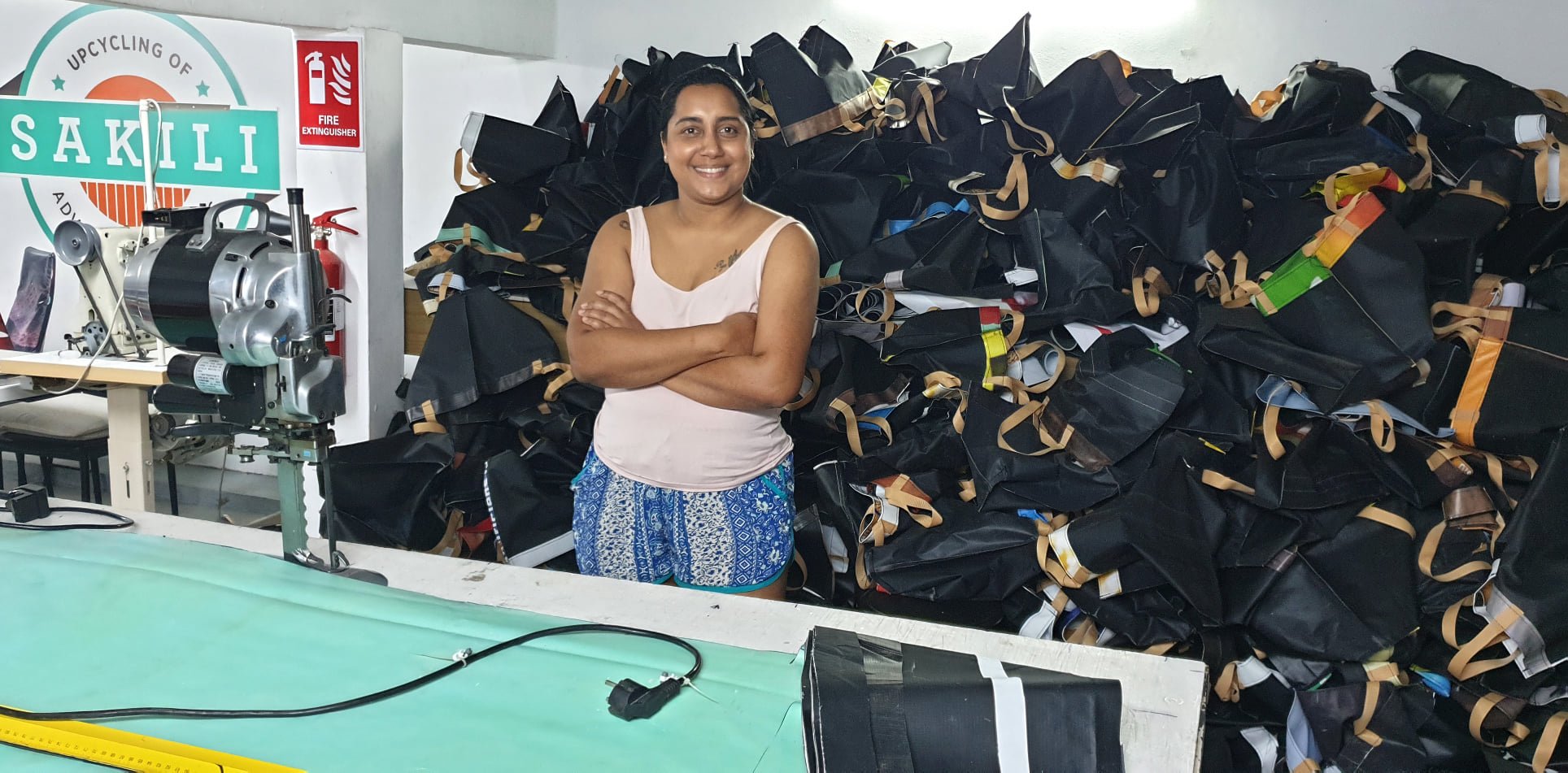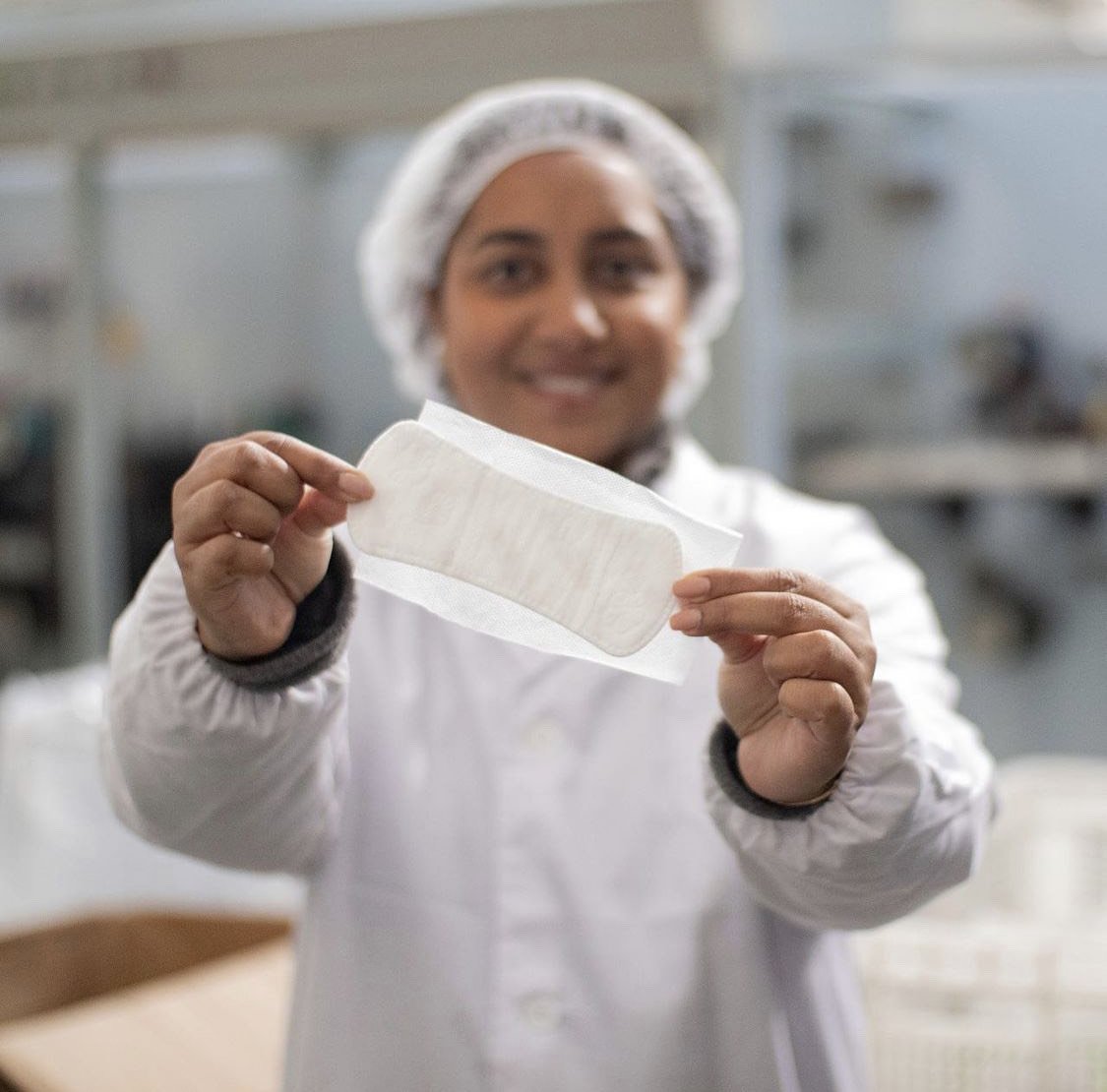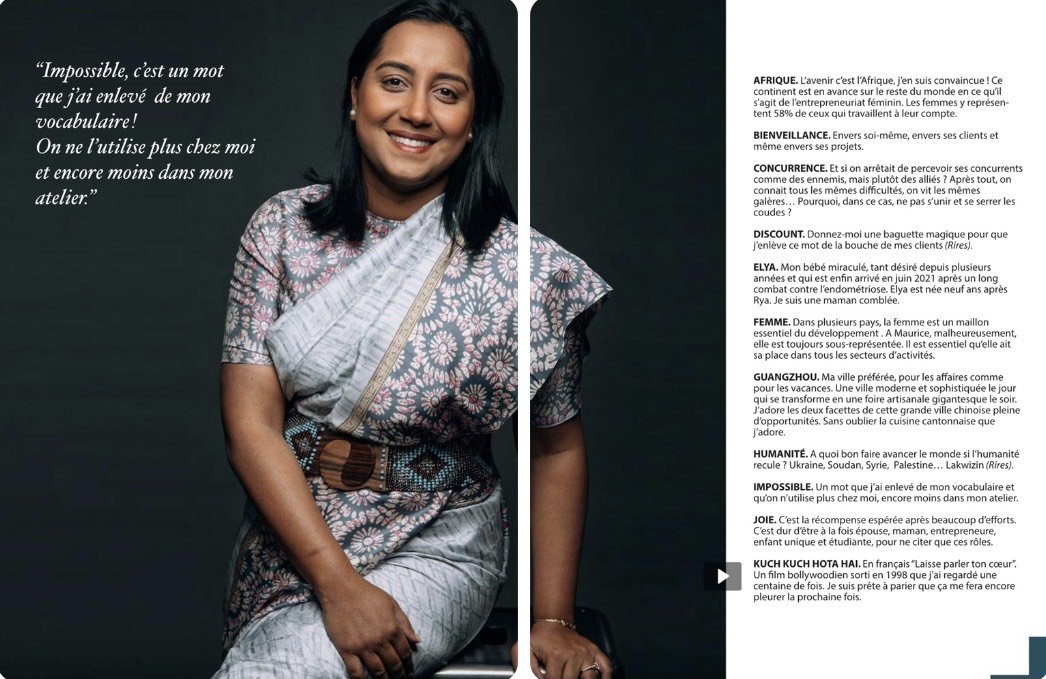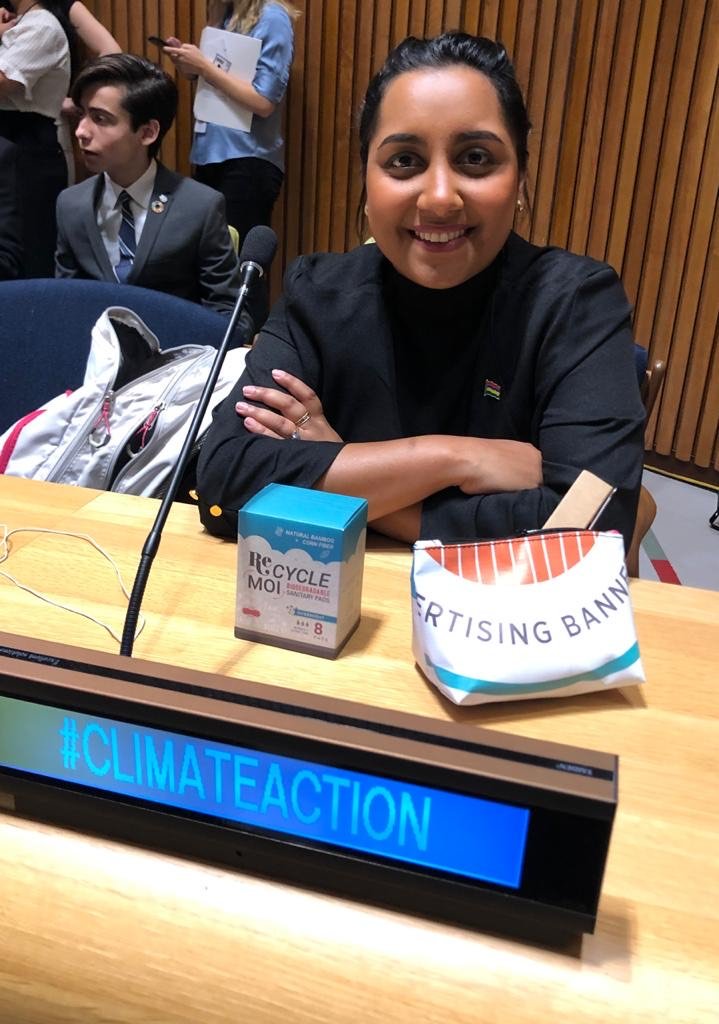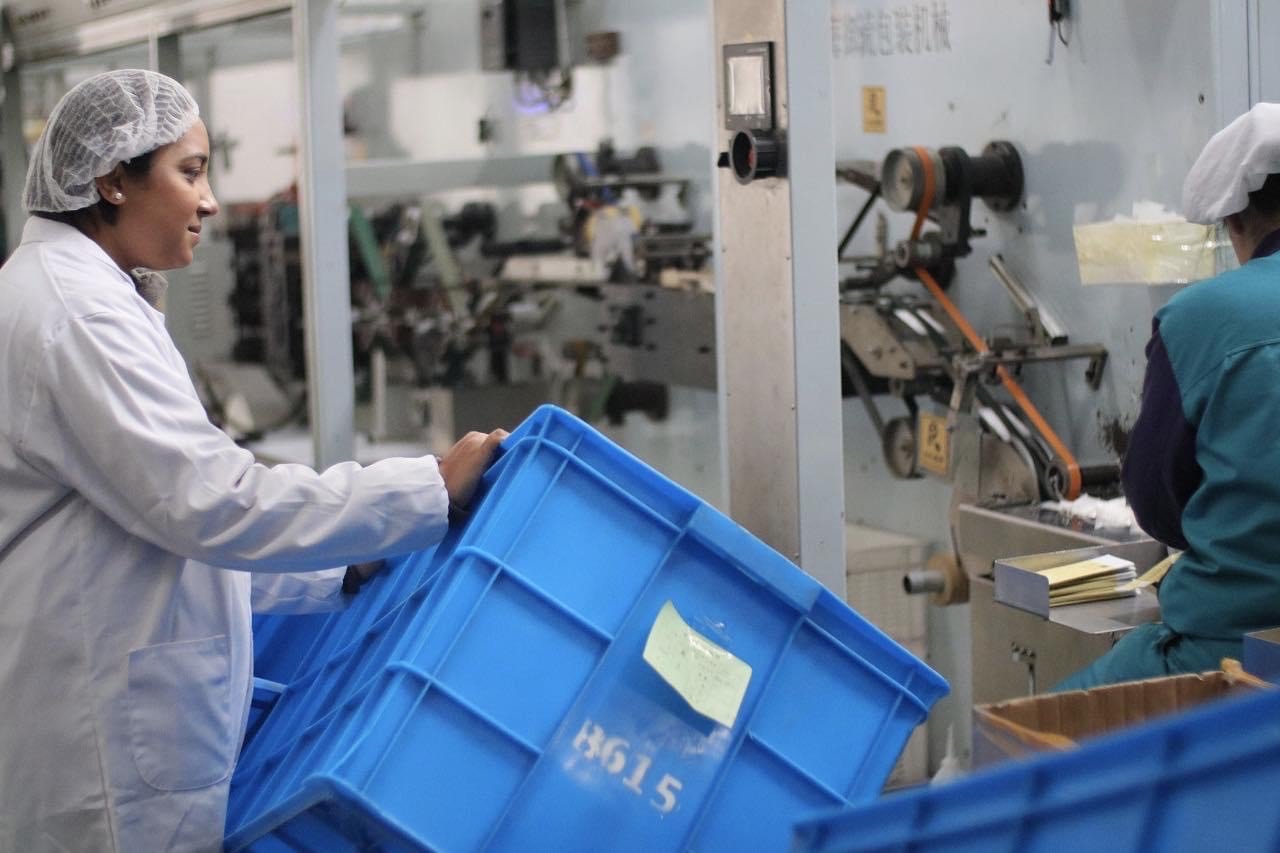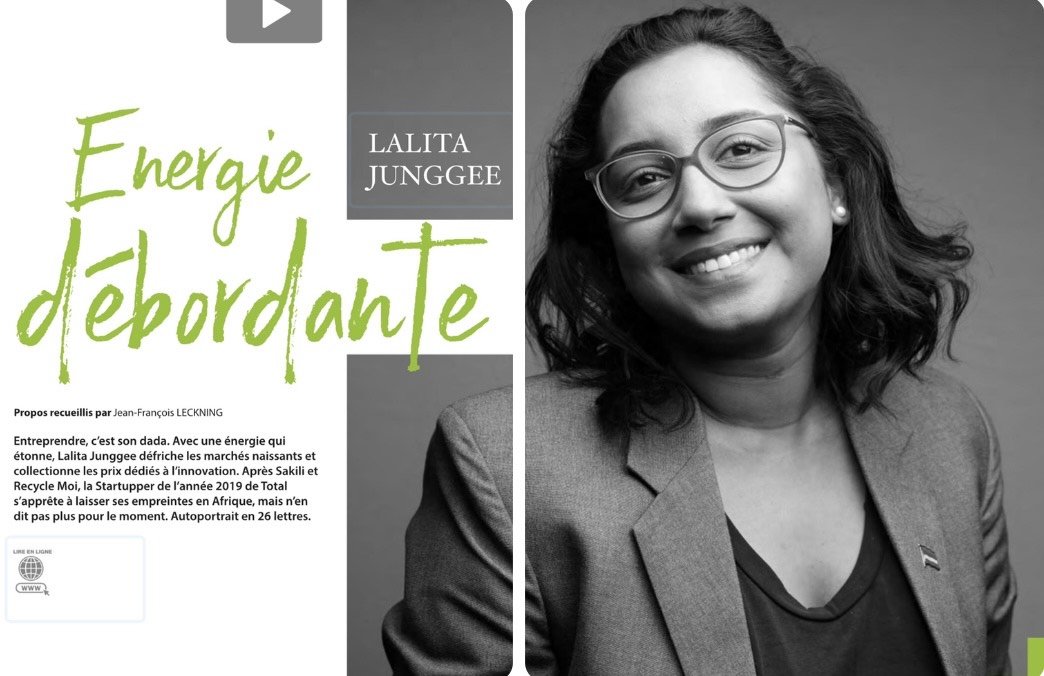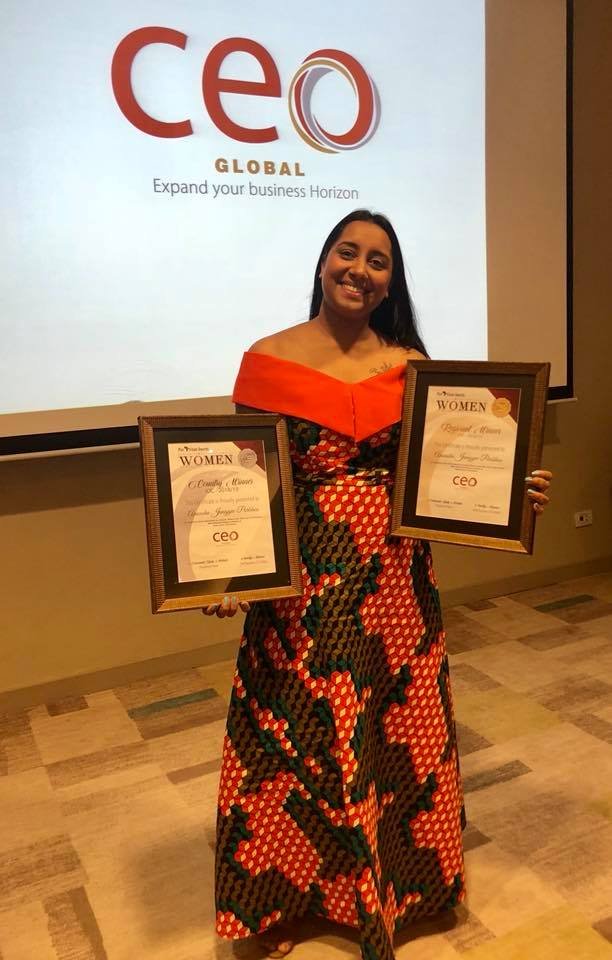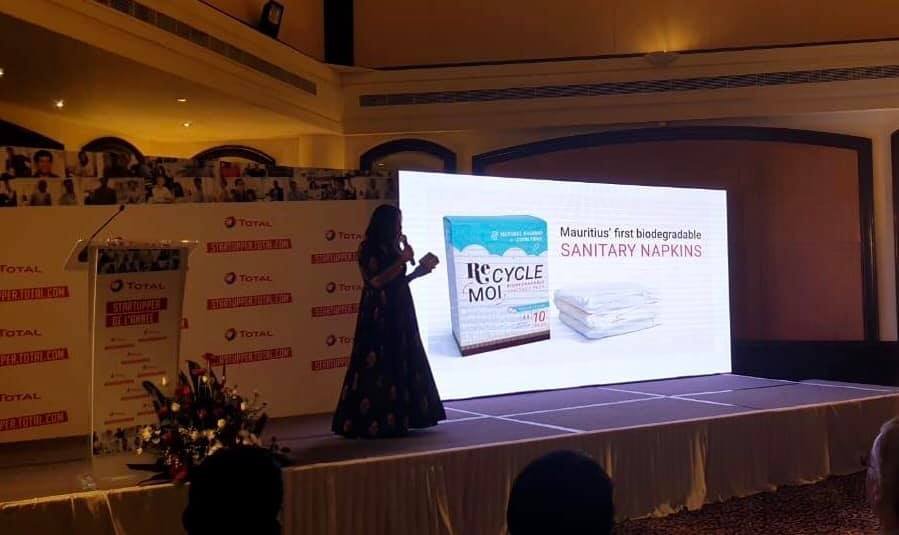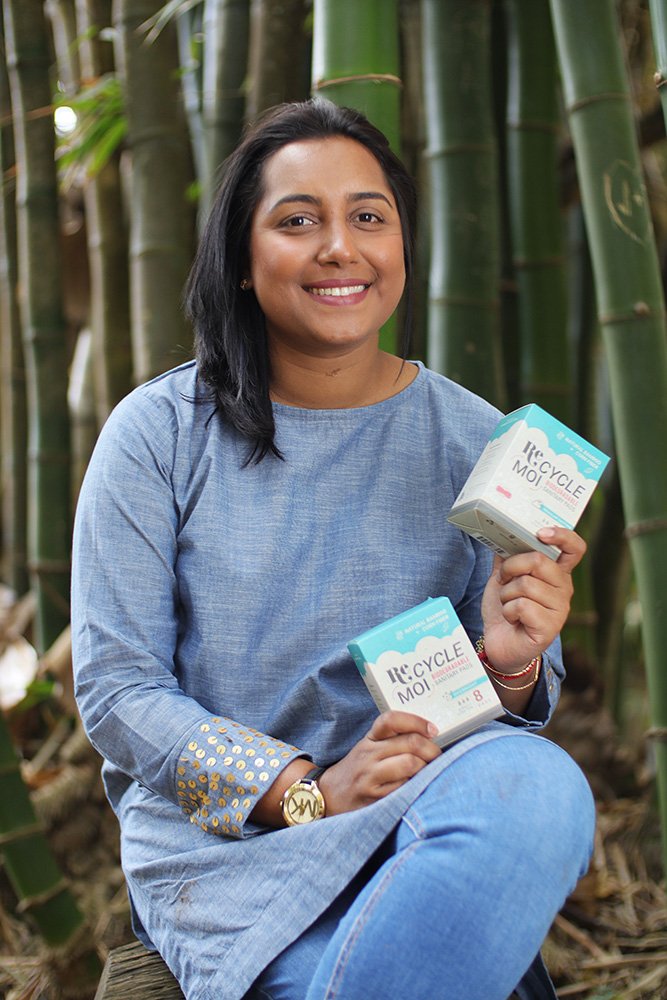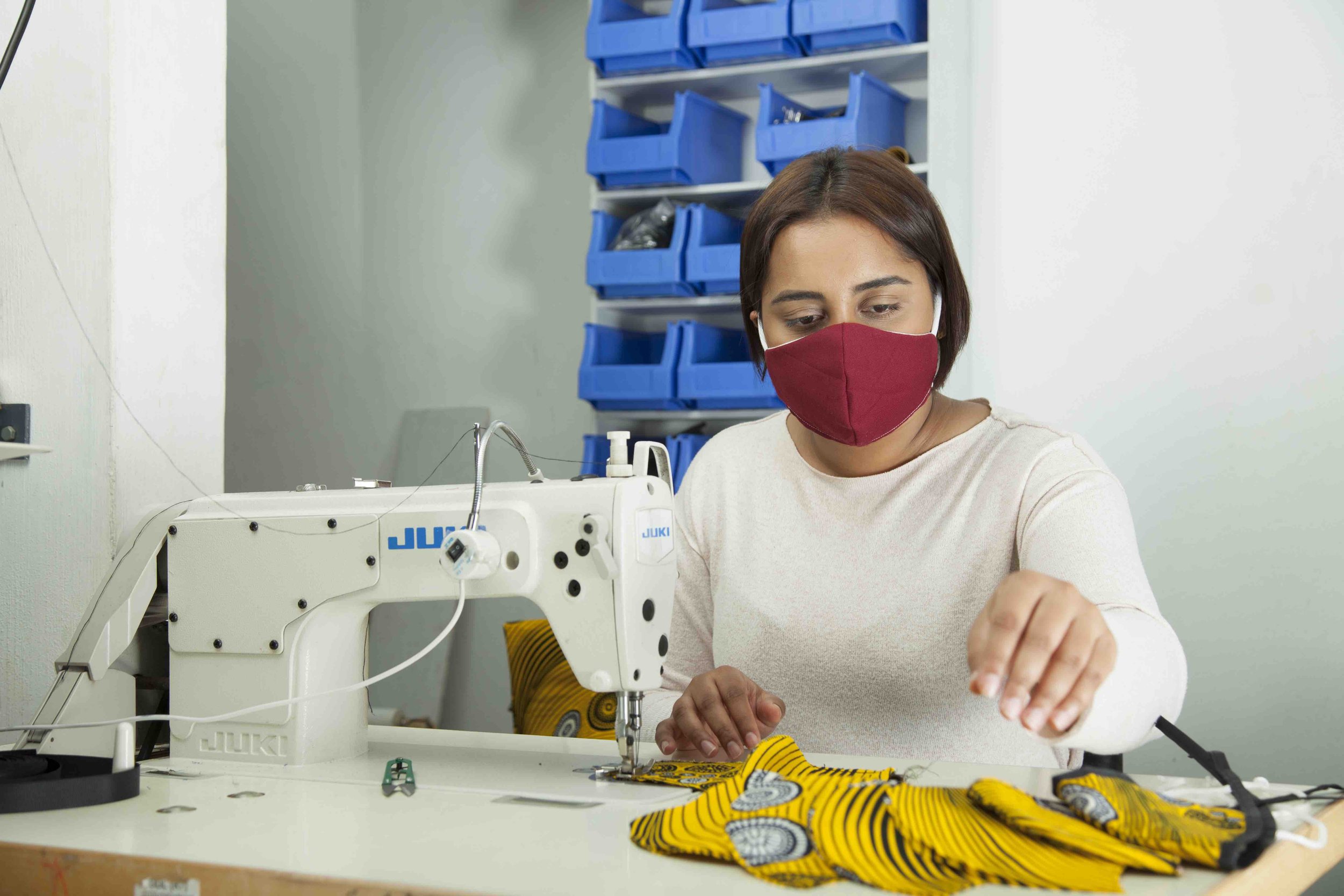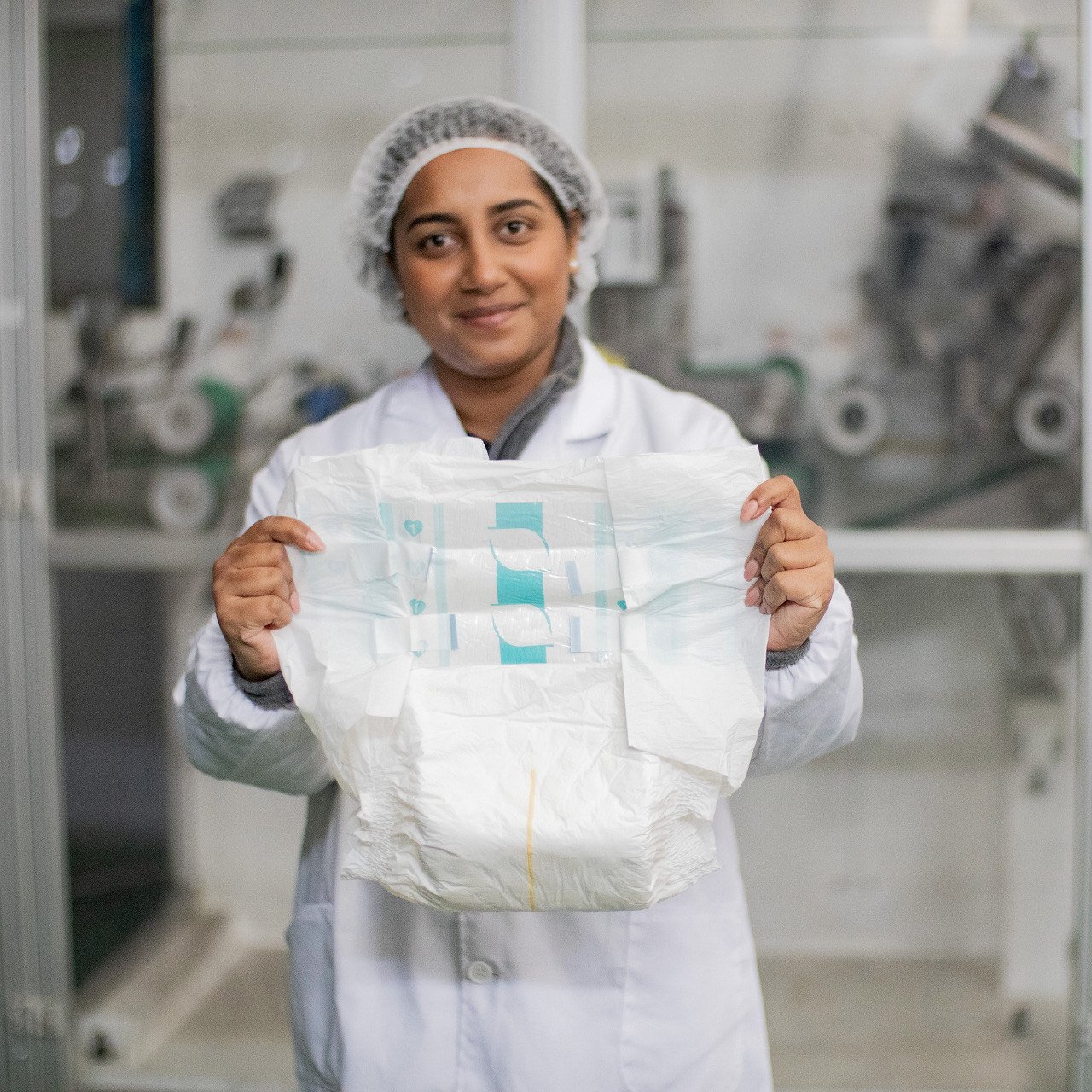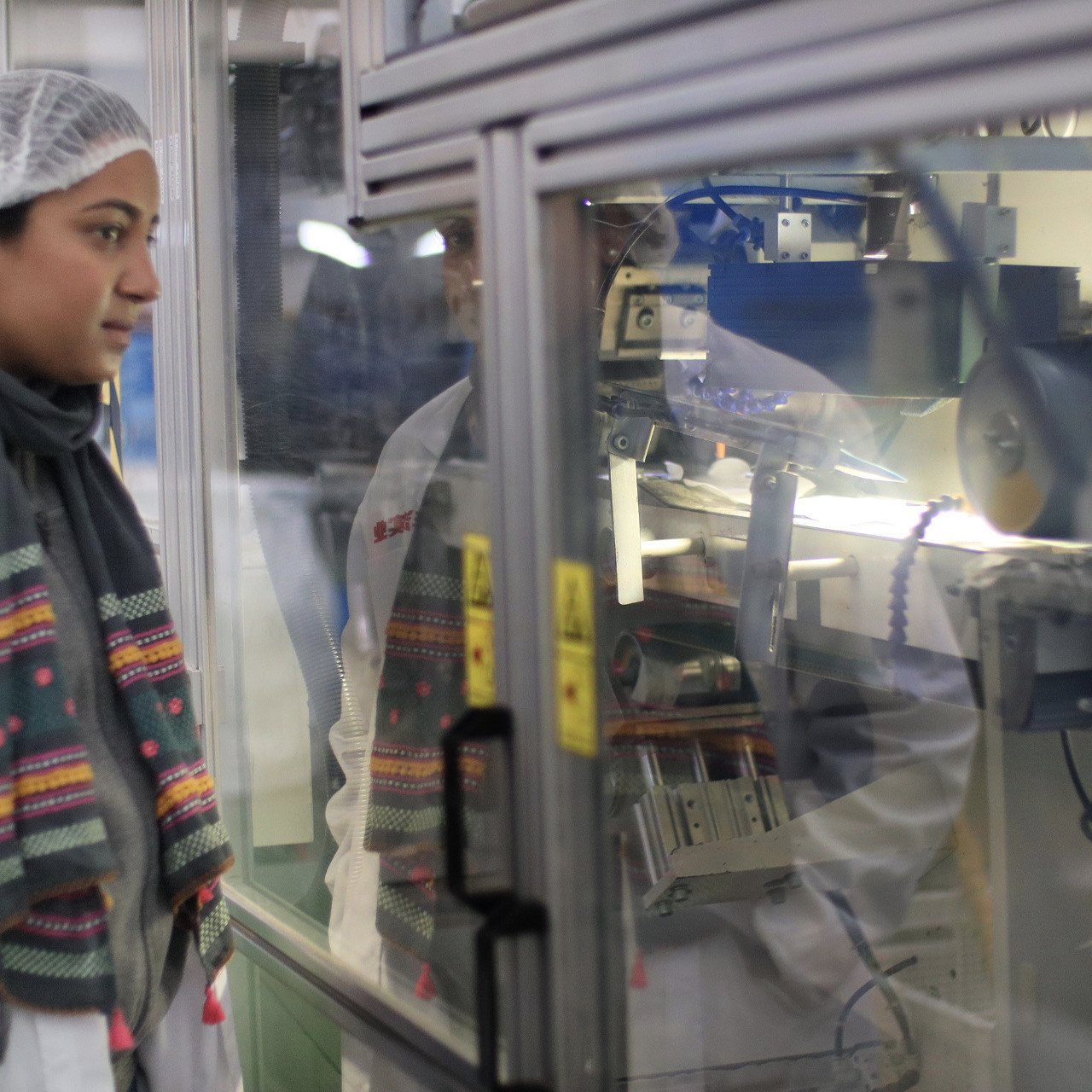LIONESS WEEKENDER COVER STORY
Eco Hustle, a business focused on innovation, sustainability and recycling in Mauritius
Lalita Purbhoo-Junggee is a social entrepreneur and award-winning business leader, and the founder and director of Eco Hustle in Mauritius, a business focused on innovation, sustainability and recycling. Lalita studied business entrepreneurship at UNISA and the Mendoza College of Business at the University of Notre Dame and, she is currently pursuing her MBA. She’s a member at the Obama Foundation, serving as country coordinator and she also chairs on the Young African Leaders Initiative (YALI) regional committee as Sustainable Coordinator. Lalita is a multi-award winner in the entrepreneurship field on the African continent and her accolades include: Seedstar winner for “Recycle Moi Africa” project, May 2022; listed among the 100 Most Influential Young Africans by the African Union Youth Program 2019; Winner of Africa most innovative idea - VivaTech 2019, Paris; National winner & Coup de Coeur Feminin; Total Startupper 2018/19; Women In Africa laureate for Innovative Start up 2018; National & Regional Winner for the 2018 Pan African Awards, SME Sector. On a personal level, she is a mother of three - two girls Elya 1 and Rya 9 and, a boy, Anshwyn, 13. Lalita is also wife to creative entrepreneur and young political activist, Nazeem Junggee.
Lioness Weekender spoke to the enterprising and sustainability driven Lalita Purbhoo-Junggee about her vision, her goals, and her passion for making a difference to the environment through her business.
What does your company do?
Eco Hustle has two brands namely Sakili and Recycle Moi. Sakili is the brand name of an upcycling line of bags that are made of advertising waste, mostly billboards and banners. Recycle Moi is the first natural and biodegradable sanitary pad in Mauritius, made by a Mauritian for the Mauritian women.
What inspired you to start your company?
I co-founded my first company, 1950 Design & Print, with my husband in 2011, leaving my dream journalist job at one of the leading media houses. I was determined to take a leap into entrepreneurship because my husband is a fine and creative designer. Together, harnessing his design skills and my network through the media, I really felt that we would make good money in a short period of time. I’m glad he remained focused and got even better over the years because I struggled a lot in the first three years. Whilst one doesn’t need a degree to start a business, it is a must to have the knowledge about how to start a business and how to develop a product or deliver a service.
Why should anyone use your service or product?
Sakili is an innovative concept because it is helping the advertising industry in Mauritius to reduce its non-biodegradable solid waste which is dangerous if dumped in the landfill or ocean. We have been rescuing tons of advertising trash since 2017, from which we have manufactured 350,000+ products and these include; shopping bags, backpacks, pouches, travel bags, laptop bags, purse, keychain, pencil cases, and many more. Our solution for the environment is also helping in job creation, reducing importation, educating people and help raising awareness to the new generation on sustainable living.
Recycle Moi is special because it was born out of the need to solve a problem that millions of women face every single day and yet most of them won’t complain because it is about our periods. Menstruation! I’m sure that some people reading this interview will be shocked, feel disgusted or will shame me for talking about this very biological function of the women’s body. Recycle Moi is the fruit of two years of research, creation and testing for a suitable natural absorbent which could replace plastic sanitary napkins. Considering the Mauritian market, I had to design a quality product at an affordable price in order to match other players who dominated the market for ages despite offering merely plastic and toxic chemicals for absorption and fragrance. My quest for this then unrealistic product became a need in 2014 when my endometriosis became worse with extreme bleeding, 8 to 12 days every month. Regular plastic pads started causing more damage to my skin. The irritation caused by the plastic pads after 7 bleeding days and above were painful. The endometriosis itself is already a very painful sickness, the rashes and the endo pain were affecting both my personal and professional life. In 2017, I came across a similar product in India. Very close to the one I was trying to create. For the first time after ages, I didn’t suffer from skin rashes during and after my periods. Since then, everything changed. People around me who thought that I was crazy about the idea of creating a rash free and 100% sanitary pad started taking time to listen. The 2cm thickness, Indian sanitary napkin without brand in a thin whitish plastic wrapping was a major motivation for developing my own product in a more sophisticated, useful and accessible product. Instead of cotton, we finalized on bamboo fibre. We went in for a 100% biodegradable individual wrap, made of corn starch. We ran over 7 trials of around 3000 pads each time before introducing Recycle Moi as a final product on the market.
Today, I proudly say that Recycle Moi is the first natural and biodegradable sanitary pad in Mauritius, made by a Mauritian for the Mauritian women. Hygienic waste is a real problem across the world, for most of the sanitary pads that are available on the global market are made of 90% plastic which are non-biodegradable, causing tons of waste. Our pads are biodegrade with 12 to 18 months of disposable. They are chemical free, toxins free and do not cause rashes, irritations and other diseases to women’s health.
Tell us a little about your team
I’m surrounded by passionate people coming from diverse backgrounds. Diversity is very important for me and I’m proud to share that at Eco Hustle we have people who have studied in Ivy League college as well as those who have never attended school and we learn from each other every day and above all, we respect each other. These people are contagious for me and they get my juices going.
Share a little about your entrepreneurial journey. And do you come from an entrepreneurial background?
I do come from an entrepreneurial background having both entrepreneurs parents. My Dad is into the tailoring business, specializing in suit manufacturing, the expensive ones, and my mom runs a catering business. She is one of the most requested cooks for traditional Indian weddings in Mauritius and as I do this interview I’m sure that she is already booked for weddings which will be held in 2023 and 2024. They are both hard working people who have always inspired me to never give up on my dreams. My entrepreneurship journey started a decade ago when I co-founded my first company. It was a heck of a ride, from being a crime reporter to becoming an entrepreneur… I will spare you of the details but the first three years were rough! I was 24 years old then, I was a new mommy, new routine, new me with extra new kilos, so many “new” things which were very exciting at the beginning but eventually led me to a burnout. I felt completely powerless, unqualified and unable to move forward.
Deep inside I knew that I was meant for greater things, but what? I decided to go back to studying. I enrolled in my first degree program back in 2013. With a new-born, new business, no experience, limited funds, I soon realised that it was not achievable. I barely finished the first semester. I dropped out. In 2016, I came across the Young African Leaders Initiative (YALI) program. It was too good to be true. There was an open call for Mandela Washington Fellowship and the YALI regional program. I decided to give a try. It was my first time applying for such a program. And guess what? I applied for both. I made it to the Regional Program. It was my first academic step into the Business Entrepreneurship field. I flew to UNISA in Johannesburg for the residential program, and met with 125 young African leaders from the 14 Sub Saharan countries. Being an African myself, I was discovering the real Africa and the youth leadership through the YALI program. That same year, my husband won a grant from the USAID, during his MWF for our Sakili project. In 2017, I applied again for the Mandela Washington Fellowship and I made it to the University of Notre Dame, for the Business Leadership Track! My cumulative successes at Notre Dame, from excelling in business pitches, acing my business model presentations unleashed the passion that I have today for entrepreneurship.
VivaTech Paris, Maison de la Radio, UN Geneva, UN New York, The Hague, Marrakesh Business Week, you name it, I was there proudly representing my business, sharing my passion, networking and learning from others. I don’t give up. There are so many opportunities out there for us, starting with the US Embassy programs: the YALI Regional, Online courses, MWF, IVLP, Fulbright... and many others; the Chevening Scholarship, the Obama Foundation, Mo Ibrahim, Tony Ilumelu, to name a few. Please look out for these opportunities, grab them and make the most out of each.
What are your future plans and aspirations for your company?
I recently won a pitch competition that will fund my business and help us expand our operations in mainland Africa. My short term goal for 2022/2023 consists of market penetrating; regional one and the African continent, serving a 100% made in Africa sanitary napkins. Long term goal is about enlarging our product line; diapers, tampons and tissue paper.
What gives you the most satisfaction being an entrepreneur?
Freedom. I love my family life and I need a flexible schedule that allows me spend enough time with my kids. My successful business would be worthless if it didn’t allow me watch my kids growing up, making memories together and sharing silly stories in bed. It does happen that I have to work 18 hours a day, every day including weekend, but I still try sneak out two or three times in the afternoon. I make sure to put them to bed every night and go back to work afterwards. Freedom to take some drastic and major business decisions. Sales and growth are important but this year, after two years of COVID crisis and level 3 lockdown, I decided to focus some time and energy on making Eco Hustle a socially more responsible company. For a small-sized business like mine, with limited budget and resources, it initially felt like a daunting task for my finance guy. But I made it! I convinced the team that we could make an outsized difference to our local community in lots of interesting ways. It started internally with a raise in salaries between 25% to 40% among 11 staff. We sponsored local events, gave free sanitary hygiene products to shelters, women in prisons and different NGOs. We’ve also been collaborating with schools to create awareness on menstrual hygiene and destigmatise it.
What's the biggest piece of advice you can give to other women looking to start-up?
Keep pushing forward, believe in your big idea. It is true that it is more challenging for us women to be entrepreneurs, but we have to learn to grow out of our comfort zone. It's going to be bumpy in the beginning but it’s ok do not give up. Reach out to your friends, colleagues, family, but do not abandon. Remember, if you don't do it today, someone else will do it tomorrow. Hard work always pays off and you will be successful entrepreneurs. When you get to your destination, I request you to remember to give back to your community. To all the women reading, may we keep fixing each other’s crown. And to the men, thank you for believing in our strength and please make more space for women in executive positions.
To learn more about the work of Eco Hustle and its two impact and sustainability driven brands, Sakili and Recycle Moi, contact the team via email: anousha@1950studio.com or visit the website: http://www.1950studio.com/eco or social media platforms: Facebook: http://m.facebook.com/anousha.purbhoo and Twitter URL: http://mobile.twitter.com/anoushajunggee
